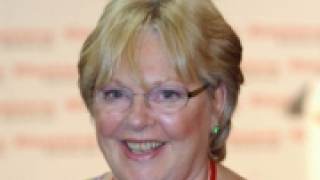MSP Margo McDonald launches bill to introduce assisted suicide

Margo McDonald, the independent MSP, has re-launched proposals to introduce assisted suicide for terminally ill patients in Scotland.
Ms McDonald, who suffers from Parkinson’s disease, launched her Assisted Suicide Bill in Edinburgh this week.
The latest effort comes after her previous bill on the same issue was rejected by MSPs in a vote of 85 to 16 in 2010.
Ms McDonald claims that the legislation has a better chance of succeeding now as support for a change in the law had increased following high-profile cases such as those of locked-in-syndrome sufferer Tony Nicklinson.
But the Scottish Government has made it clear that it does not agree with a weakening of the law on assisted suicide.
Under her plans, patients can opt for a physician-assisted suicide if they have a progressive degenerative condition or terminal illness that makes life “intolerable”.
Concerns have been raised that the legislation fails to offer sufficient protection for elderly and vulnerable people, and would result in Scotland becoming a "suicide tourism" destination.
Duty to die
Dr Peter Saunders of Care Not Killing said: “The right to die can so easily become the duty to die and vulnerable people who are sick, elderly or disabled will inevitably feel pressure, whether real or imagined, to end their lives so as not to be a burden on others.
“Ms MacDonald's new proposals are effectively her old ones dished up again. I expect the Scottish Parliament to give them short shrift.”
Care Not Killing convener Dr Gordon Macdonald said: “The Scottish Parliament overwhelmingly rejected an attempt by Margo MacDonald to legalise euthanasia and assisted suicide in 2010.
“MSPs concluded that vulnerable people would be put at risk from such legislation.
“Scotland can learn from the damaging effects of legalising euthanasia and assisted suicide in other parts of Europe and North America.
“Europe can learn from Scotland's example as a country which has rejected the view that some people's lives are not worth living. We believe that society has a responsibility to protect the most vulnerable."
Sources:
